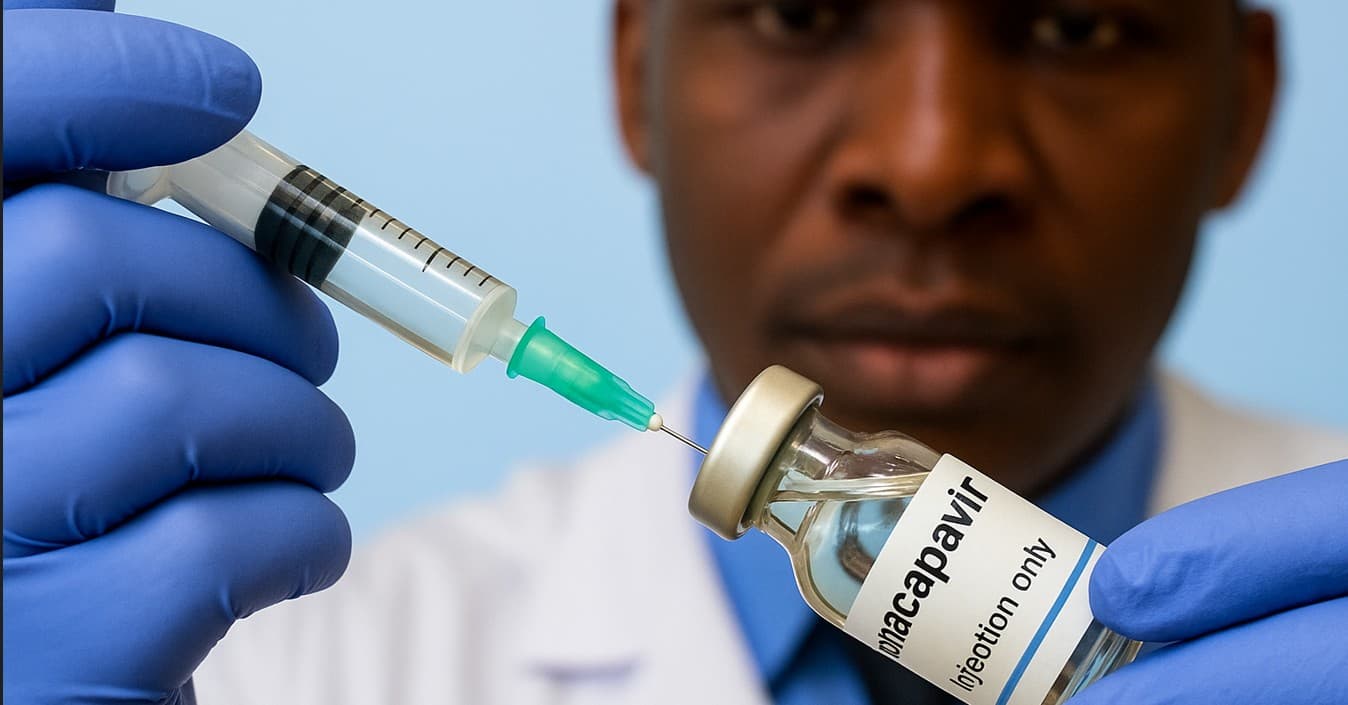We're loading the full news article for you. This includes the article content, images, author information, and related articles.
Homa Bay, Kenya – Millions of people across Africa and other low- and middle-income countries, including Kenya, are set to access a powerful new HIV prevention option following a groundbreaking deal that will drastically cut the cost of treatment.

Nairobi, Kenya — September 26, 2025 (EAT).
Millions of people in Kenya and other low- and middle-income countries are poised to benefit from a breakthrough HIV prevention tool, with the cost of the twice-yearly injectable lenacapavir slated to drop dramatically under a new generics deal.
The Bill & Melinda Gates Foundation has partnered with Indian drug manufacturer Hetero Labs to facilitate the production of a low-cost generic version of lenacapavir, aiming to make it available at roughly US$40 per year(about KSh 5,100) after a short oral pre-treatment regimen.
This arrangement is part of a broader push: parallel deals between Unitaid, CHAI (Clinton Health Access Initiative), Wits RHI, and Dr. Reddy’s Laboratories intend to expand generic access across 120 low- and middle-income countries by 2027.
Lenacapavir was approved by the U.S. Food and Drug Administration and the European Commission earlier in 2025 as a PrEP option, delivering six months of HIV protection via a single injection.
PrEP (Pre-Exposure Prophylaxis) has primarily relied on daily oral pills, which pose adherence challenges and stigma for some users. Lenacapavir’s six-month dosing could overcome those barriers.
Gilead Sciences, which developed lenacapavir (branded as Yeztugo / Yeytuo), had already granted royalty-free licenses to six generic manufacturers to supply in 120 countries.
The generics agreements are accompanied by volume guarantees, upfront funding, and support to accelerate regulatory approvals and market readiness.
Opportunities & Benefits
If Kenya adopts lenacapavir early, the country could reach at-risk populations who struggle with daily pill regimens, particularly in high HIV prevalence counties (e.g. Homa Bay, Kisumu).
The reduced cost might ease the burden on national health budgets, especially when combined with donor support, making scale-up more sustainable.
The shift may accelerate reductions in new HIV infections if usage is scaled adequately across vulnerable groups.
Risks & Challenges
Access is contingent on regulatory approvals in Kenya and procurement systems that can absorb the generic version.
While the price is projected to be low, the injection requires cold chain, trained health personnel, and patient follow-up, which are logistical demands especially in rural areas.
The 120-country licensing scheme excludes some regions, raising concerns about equity and access in countries not covered.
The exact timeline when Kenya will begin to roll out generic lenacapavir.
The terms of government procurement and subsidy models—whether patients will pay or it will be offered free in public health facilities.
Whether existing public health infrastructure (cold storage, injection capacity) can scale sufficiently.
How demand will compare to supply, and whether there will be shortages or stockouts early on.
June 2025: U.S. FDA approves lenacapavir for PrEP use.
September 24, 2025: Gates Foundation & Hetero Labs announce partnership to produce affordable generics.
2027 (projected): Generic lenacapavir expected to be widely available in 120 low- and middle-income countries.
Kenya’s Health Cabinet and Pharmacy & Poisons Board announcements on regulatory approval.
Procurement frameworks from MoH and donors (Global Fund, PEPFAR) for the injection.
Implementation in pilot counties or high-HIV zones, and monitoring uptake.
Impact on oral PrEP usage, whether users switch or combine options.
Keep the conversation in one place—threads here stay linked to the story and in the forums.
Sign in to start a discussion
Start a conversation about this story and keep it linked here.
Other hot threads
E-sports and Gaming Community in Kenya
Active 9 months ago
The Role of Technology in Modern Agriculture (AgriTech)
Active 9 months ago
Popular Recreational Activities Across Counties
Active 9 months ago
Investing in Youth Sports Development Programs
Active 9 months ago